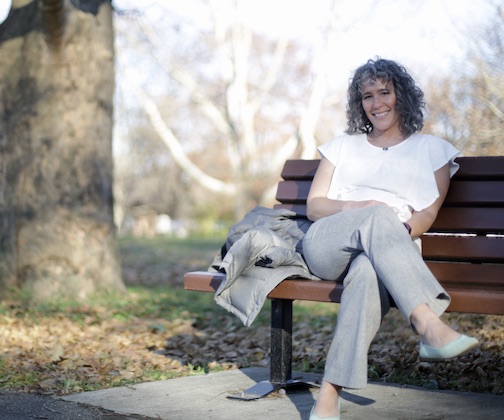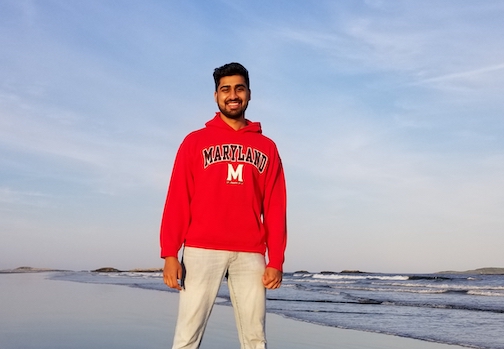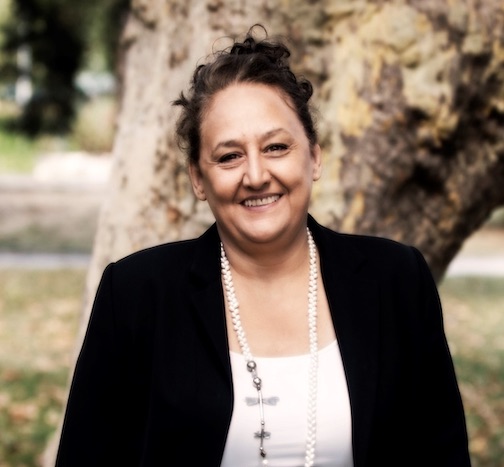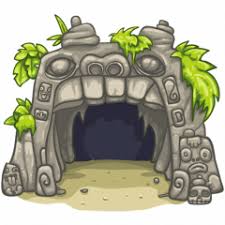Tell us about your background and what got you interested in your area of healthcare?
I became interested in healthcare primarily due to experiences managing my own health growing up. Since I can remember, I have had severe asthma that often left me sick and in my doctor’s office frequently. My interest in prevention and preventive health started with a wish to simply stay out of the doctor’s office for as long as I could.
These initial experiences pushed me to learn as much I could about healthcare and human health. In high school, I started doing biomedical informatics research at Johns Hopkins University, and had an opportunity to be mentored by incredible physician scientists who gave me my first look into patient-centric healthcare innovation. My initial research at Johns Hopkins motivated me to then pursue experiences as an undergrad that enabled me to learn as much as I could about the US healthcare system and opportunities for innovation.
However, it wasn’t long until I began to see a different side of the patient-provider relationship. Many of the clinicians that had played an important role in my life (my own nurses and physicians, my closest mentors, and even family members) have all faced burnout. And while I didn’t see this earlier in life, it become much more apparent in high school. So, when I had the opportunity to meet other students at the University of Maryland who shared my lived experiences and were similarly passionate about doing something to improve clinician wellbeing, Vitalize was started.
Tell us about your work and the neighborhood or different locations that you work in.
With Vitalize, we are building a digital platform for individual clinicians to access tailored wellness in a convenient manner while enabling healthcare organizations to better track staff wellbeing in real-time. We are soon to start pilots of our platform in three states across the US and are soon to finalize the details of our first pilot in the United Kingdom. As mentioned earlier, our vision is to become a truly global platform, as we see the problem of poor wellbeing and professional satisfaction among the healthcare workforce on a global scale, especially given the effects of the COVID-19 pandemic.
How has your work routine changed since the pandemic?
My work routine has become more unstructured. When the pandemic began, I was still an undergrad and it forced me to take control of my schedule and become more intentional about adding structure, whether that was for work, fitness, or helping take care of family members. Since graduating college this past May and moving to the UK in September to start by PhD, I have utilized similar habits to ensure that I have balance in my life and can dedicate enough time to both run my company and make progress towards my PhD. One thing I have realized is that Zoom fatigue is real, and I have worked hard to ensure that Vitalize can eliminate meetings whenever possible for our team’s collective wellbeing.
How does trust play a role in your professional life, especially in the current COVID atmosphere?
I think trust is an incredibly important thing, especially in a world where it can be difficult to connect and work in ways that many of us had previously taken for granted. Given that so much networking today happens online, especially for many individuals who are early in their career and are trying to build networks (like myself), it is important to have trust in those you are meeting and building relationships well. For entrepreneurs, being able to leverage and build your network along with your business is key, and trust is the first step in confidently doing this.
What do you wish the public knew about what you experience, in your field of health?
One thing I wished the public knew is magnitude of poor wellbeing and burnout among clinicians in our healthcare system. The COVID-19 pandemic was unique in that it placed a national spotlight on the work of clinicians around the country, one that did not exist before the pandemic. Major news outlets like TIME wrote articles on clinician wellbeing and statistics quantifying the prevalence of burnout were increasingly available. Currently, nearly 70% of clinicians face symptoms of burnout, up nearly 20% from pre-pandemic levels.
However, what many people miss is that poor wellbeing and emotional exhaustion among clinicians existed long before the pandemic. For decades, clinicians have been suffered from depersonalization, stress, and poor wellbeing, and in many cases, the culture that exists within clinical practice continues to perpetuate this. My hope is that the spotlight of the pandemic will bring forth additional innovations to more sustainably address clinician wellbeing, both from individual-facing and organization-facing perspectives.
What is the best part of your day? The hardest?
The best part of my day is having coffee with friends – I love finding new coffee shops in Cambridge and getting a flat white while I get to meet new people. The hardest is being away from lots of family/friends when I am in the UK.
How has Covid-19 changed your approach to your work going forward?
I am more intentional than before about ensuring that there is balance in my life. As a student entrepreneur, it’s very easy to get sucked into the “hustle” mentality. One thing I realized early in the pandemic is that creating balance will lead to success as entrepreneur and prevent burnout. So, since mid-2020, I have been far more intentional about fitness, meditation, and spending time with friends/family when it is safe, and it has been very powerful for me, even this early in my career.
What is the best life/career advice anyone has ever given you?
Do what you love to do, and money will follow. This is something that my dad told me when I was growing up, and it has stuck with me to this day. My core philosophy is that I should wake up each day excited for the work that lies ahead of me – if this is true, then I am doing the right thing. Of course, there will be stressful days and bad days in any path one chooses but being genuinely excited and passionate about the work you do is paramount to achieving success.
Can you recommend one easy, daily self-health practice that can help people get through the day?
Depending on how you are feeling, it’s always great to have a quick 20-minute workout or nap during the day to boost your energy and or reset your mindset if you are feeling frustrated/stuck. This has been very helpful to me during the pandemic, especially when many of us are working in home offices and aren’t able to get a change in scenery.
Is there anything else you’d like the public to know about how it feels to be devoting yourself to public health and becoming an entrepreneur in the middle of a global pandemic?
While it can be overwhelming at times, it’s an incredibly rewarding field to be in. Being able to improve the health and wellbeing of others is a powerful thing – after all, our health is one thing that connects us all. I would especially encourage other students interested in pursuing public health and healthcare entrepreneurship to dive in – it is an incredible time we are living in, one rife with opportunities to make significant and lasting change in health.
More Stories from Kinnected

At times, it has been really frustrating to be a strategist and health communication professional and witness the lack of strategic planning and messaging that we have over the last two years.
-
4 years ago

"What many people miss is that emotional exhaustion among clinicians existed long before the pandemic."
-
4 years ago

"A lot of people argue whether technology is good for the future of humanity or bad. In my opinion, it is both - just as an herb could be a poison or a medicine."
-
4 years ago

